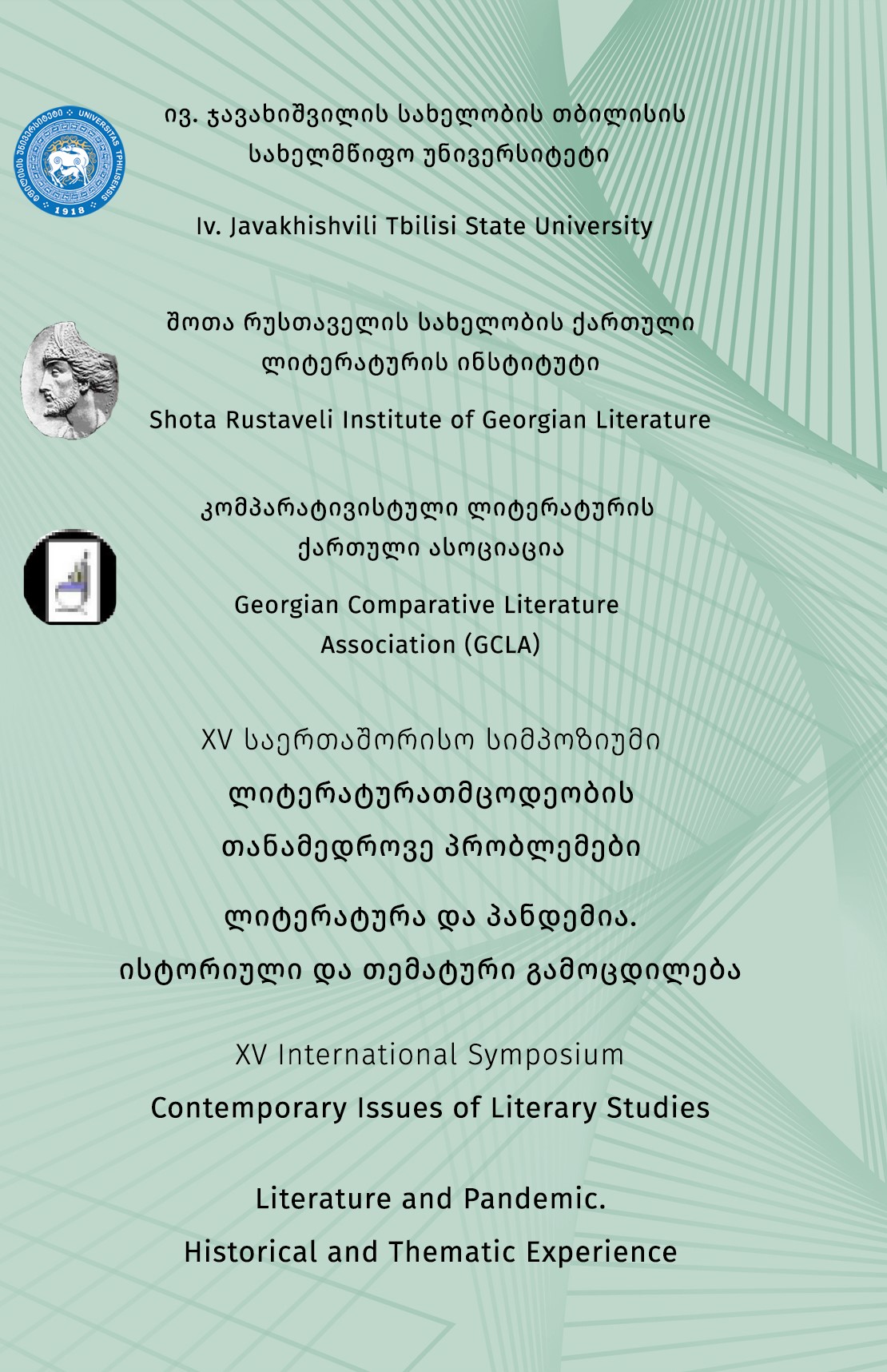გამოქვეყნებული 2021-12-20
საკვანძო სიტყვები
- Marlen Haushofer,
- The Wall,
- Isolation,
- Literary Anthropology,
- Literary Animal Studies
- Poetics of Everyday Life ...##plugins.themes.classic.more##
ანოტაცია
The novel „The Wall” („Die Wand”, 1963) by the Austrian writer Marlen Haushofer (1920-1970) is analyzed from the perspectives of modern literary anthropology. Attention is focused on the poetics of everyday life and the ways of communication during total isolation. The phenomenon of the barrier that separates the nameless heroine from the usual coexistence with people is considered. The adaptation means of the female protagonist to the new reality with the oppositions „city – village”, „civilization – nature” are studied. The role of animals for human survival is emphasized on the physical and mental levels. The chain of events after the catastrophe, presented by the heroine in a memory diary with flashbacks into the „common” past, demonstrates attempts at selfreflection of the person in a crisis, where the wall is only a trigger of existence. The open ending of the novel, which seems to be the most lifeaffirming episode in the general narrative, intensifies the protagonist’s antisocial character, readiness for loneliness and the struggle for survival.
The Austrianness of the situation in the novel reveals in the author’s figure and its socio-historical context. M. Haushofer creates a typical image of an ordinary 40-year-old Austrian, recently widowed mother of two daughters. Moreover, her sporadic family’s memories are either neutral (husband) or negative (problem teenagers). The Alpine valley and meadow – the limited heroine’s area could be regarded as a symbol of Austria in the middle of the 20th century – a small tourist country on the huge geopolitical map of the world.

